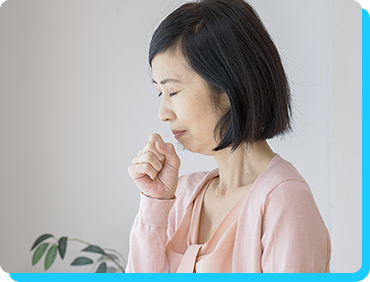Whooping cough risks for adults
Whooping cough spreads through the bacteria Bordetella pertussis, and anyone exposed to it can get sick. Getting vaccinated with a Tdap vaccine can help protect you from the disease.

Understand the risk for adults
People of all ages—not just kids—can get whooping cough and should understand the risks of the disease. According to the Centers for Disease Control and Prevention (CDC), in 2019, nearly a quarter of reported whooping cough cases in the US were in persons 20 years of age and older. Further, 61% of adults with whooping cough missed an average of 10 work days.* Getting vaccinated against whooping cough can help prevent the illness.
*In a study of 203 adults with whooping cough.
While whooping cough is often less severe in adults than in infants, in some cases it can still lead to serious complications.
Weight loss
Adults with prolonged symptoms of whooping cough may not be able to eat or drink and might experience weight loss as a result.
Incontinence
When sick with whooping cough, some adults lose control of their bladder due to coughing fits.
Passing out
Some adults might pass out or feel faint during severe coughing fits from whooping cough.
Bruised or fractured ribs
Adults may experience bruising or cracking of their ribs from severe coughing fits resulting from whooping cough.
Hospitalization
In severe cases of whooping cough in adults, some people may require hospitalization to get treatment.

Whooping cough is contagious
The bacteria that cause whooping cough spread easily through coughing or sneezing while in close contact with others. People are most infectious for at least 2 weeks after the cough begins.
Whooping cough is known to spread within households. Babies often catch it from siblings, parents, grandparents, and other members of their extended family.


